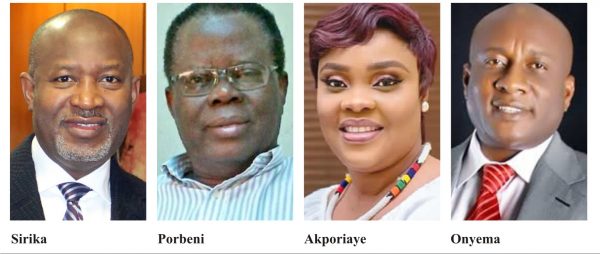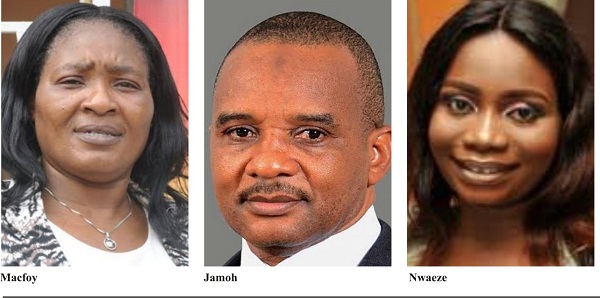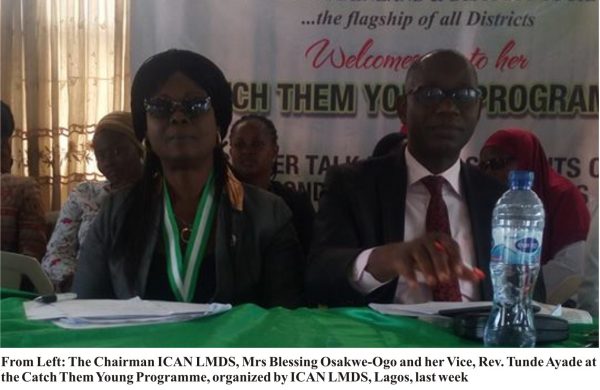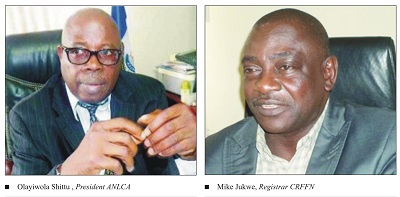Civil Servants vs Private Port Operators
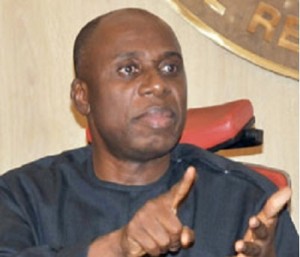
While the Minister of Transportation, Hon Rotimi Amaechi read his opening speech at the recent maritime summit organized by his ministry last week, he noted that the event was orchestrated to enable the ministry pool useful opinions from all relevant stakeholders (ie. government agencies and port operators) on the best tactical options for repositioning the maritime industry. However, the conference turned out to be a tussle between government officials and private operators.
According to the Minister, the conference could not have come at a more opportuned moment as the nation resolves to recreate a better, richer and diversified economy for Nigeria. He noted that the feat would be achieved through collaboration and genuine partnership with all the stakeholders in the maritime industry.
Amaechi had admonished both parties to make the best use of the occasion and come up with practical and implementable recommendations that will make the maritime industry in nation more competitive; however there was more drama than expected at the event.
The power tussle between civil servants and private operators was first noticed when the former president of Association of Nigerian Licensed Customs Agents (ANLCA), Earnest Elochukwu was told to leave the table he sat at because it had been reserved for the organizing committee officials of the event who are civil servants and the former ANLCA boss felt really humiliated and vocally expressed his dissatisfaction.
The organizers of the event had reserved the tables on the front row for the organizing committee officials who were Executives Directors at the Nigerian Ports Authority (NPA), Nigerian Maritime Administration and Safety Agency (NIMASA) and the Nigerian Shippers Council (NSC), but their actions leave a lot to be desired. This also leads to the question- who is most important at such a meeting? If the conference was to get incisive contributions from stakeholders- aren’t the private operators the ideal VIPs (Very Important Personality) at such summit?
It is important to note that without the operators the ports aren’t complete. In fact, there are no ports without individual operators because a port wouldn’t be classified as one until it is operational. Subsequently, the services of the operators are required for a port to be functional as a port isn’t only characterized by its structures but its operations which are carried out mostly by private operators and there would be no need for government agencies at the ports if the operators aren’t available.
These private individuals are also saddled with the onus of paying taxes to the government and the revenue from tax is utilized to pay the salaries of the civil servants. Wouldn’t the government be downsizing its staff if the tax from individual operators depreciates? For civil servants, especially the flamboyant ones in the maritime industry, this is food for thought.
The CEO of Brittania U, Mrs. Uju Ifejika also got cut in the web at the summit lamented that she had been forced to take her cargo to Lome for Ship-to-Ship (STS) transfer as a result of the low draft level of the Lagos ports.
Swiftly, a former Managing Director at NPA, Adebayo Sarumi retorted that the economic benefits were not sufficient enough for the government to risk investing colossal sums required to dredge the ports. According to him, the funds to be generated from the volume of high capacity vessels using the port would not be able to cover for the finance required to dredge the ports.
Following the heated debate over this issue, Mrs. Uju walked out of the conference.
In a chat with MMS Plus after the summit, factional president of the National Council of Managing Directors of Licensed Customs Agents (NCMDLCA), Mr. Lucky Amiwero highlighted that one of the problems in the maritime industry was that civil servants always want to outsmart the private stakeholders over issues during conferences.
Amiwero said, “one of the problems in this industry is that when we have conferences like this, government officials always pass wrong information on issues that the operators, who are the major stakeholders, know are false”
“Mrs Uju Ifejika stated that our draft level is low and what she was saying was stop on, the draft level in Lome is better suited for larger vessels than Nigeria. Civil Servants in Nigeria are story tellers, rather that admit that this is an issue, they tried to cover up convince the minister.
“There are many ships that can’t come to Nigeria but they can go to Ghana and Lome which have deeper draft levels. In the case of Ghana, Their port is very close to the sea but we have river ports here in Nigeria. The depth levels of these ports are higher than ours and this means some high duty vessels can’t come to Nigeria.
“We are in a system whereby people use their office to pass wrong information and we cannot continue to recycle this information that is wrong” he stressed.
It is also important to note that it is the private operators that keep accurate data and information to furnish the ministry and other government agencies when there is a change in the administration or when documents get missing as it does mostly in the ministry.
Private operators have also demonstrated higher spirit of patriotism compared to civil servants by constantly forwarding proposals and suggestions to the government on possible ways of improving the efficiency and productivity of the maritime industry in Nigeria.
A conference is provides an opportunity to bring together experts, professionals and other industry players to brainstorm on the issues which are germane and strategic enough to bring about resolutions and recommendations for urgent consideration and the private operators should be at the fore front. As the saying goes, “only the wearer of the shoe knows where it pinches”.
Government officials should be encouraged to take advantage of such opportunities and examine the issues arising from interactions so that they could collectively articulate the thoughts, do investigations thereafter and make inputs to the reports that emanate from the conferences and forward to the Federal Government.
By Kenneth Jukpor




